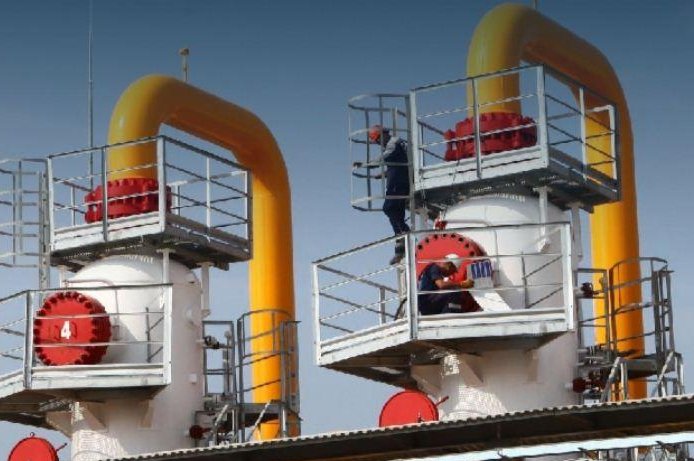Russian natural gas company Gazprom the latest to express concerns over the market fallout from the Middle East spat over Qatar. Photo courtesy of Gazprom
June 6 (UPI) -- The regional dust-up over ties to Qatar could lead to bearish market sentiments, especially for natural gas, Russian energy company Gazprom said.
Saudi Arabia coordinated with its regional allies to sever diplomatic ties with Qatar, a fellow member of the Organization of Petroleum Exporting Countries, because of the alleged support for terrorist groups like al-Qaida and the group using the moniker Islamic State.
In a statement carried by the official Saudi Press Agency, the government in Riyadh said the multilateral action "was an expression of keenness to preserve the unity of the Arab nation and take stance against Qatari acts, aimed at destabilizing security, in the region, contravening accords, charters, principles of international law and good neighborliness."
Qatar is the largest supplier of liquefied natural gas in the world and the row is having market spillover effects. Alexander Medvedev, the deputy chairman of Russian natural gas company Gazprom, among the world's leaders, said the geopolitical situation in the region could lead to broader problems.
"Whether it will happen or not - we do not know," he was quoted as saying by Russian news agency Tass. "To be honest, when the market is shaking, it is only interesting to market speculators. We prefer to have a predictable picture."
In the wake of the immediate announcement from Riyadh and its diplomatic allies, trade group U.K. Onshore Oil and Gas said the issue indicates why a nation with an emerging shale natural gas sector like Britain's should protect itself from shocks emanating from foreign shores.
The regional split is along ideological and geopolitical lines, with Saudi Arabia keen on containing rivals in Iran, which has aligned itself with Qatar. The division also may be a sign of an emboldened Riyadh, which recently signed a multi-billion dollar defense deal with the United States, a key natural gas supplier in its own right.
Speaking during a summit in Australia on Monday, U.S. officials said the split was a response to regional irritants. After years of détente from former President Barack Obama, U.S. Defense Secretary James Mattis said the issue could deepen the rift with Iran, which is also rich in natural gas and one of the top oil producers in OPEC.
"They are going to incite the international community in that region," Mattis said during a briefing with reporters.















